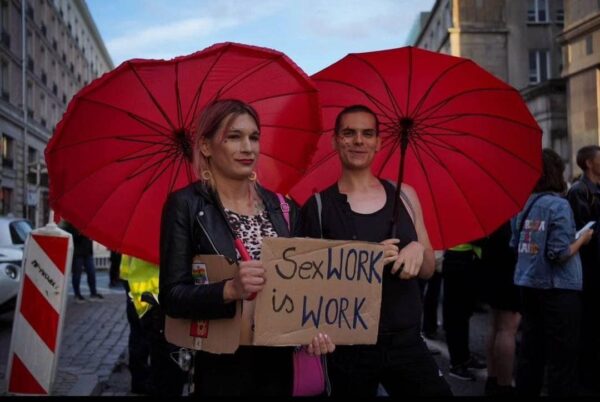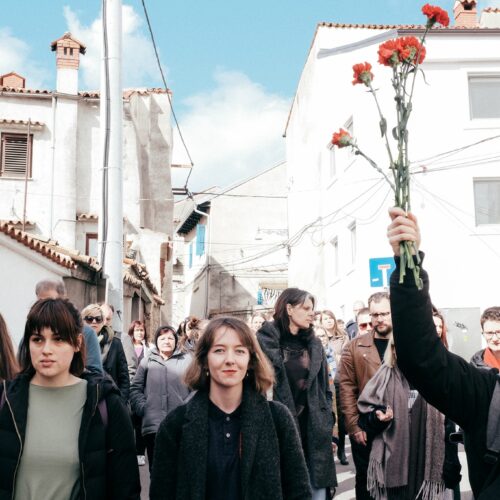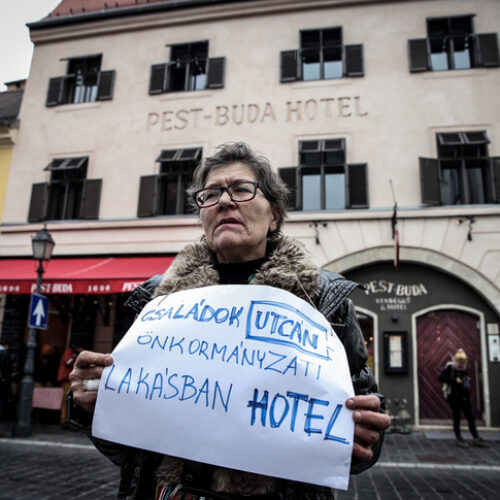Sex Work Polska is a non-hierarchical, informal collective. They are the only advocacy group for sex workers’ rights in Poland. Since 2018 they are led by sex workers and their main goal is the recognition of sex work as work and it’s full decriminalisation.
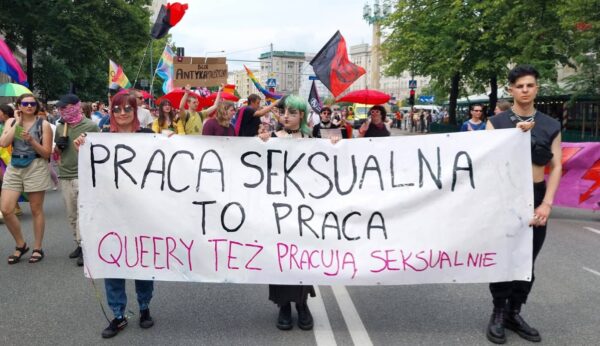
They also aim to destigmatise sex work and to increase the representation of sex workers in political debates and processes. Sex Work Polska crew aim to improve working conditions and the safety of sex workers (in terms of safety from violence and exploitation, but also in terms of access to sensitive services and access to justice).
Their advocacy work can be divided into actions aimed at our community and actions aimed at the wider public. They see their mission as building a strong and vibrant sex worker community and overcoming isolation through self-organisation, mutual support, sharing experiences and knowledge, and empowering our community. The team works towards networking sex workers in Poland and also developing links with the transnational sex worker community in Europe and beyond.
Secondly, SWP aim to reach out to the wider public by creating a ‘narrative of influence’, introducing non-stigmatising language and narratives about sex work and sex workers’ lives, presenting their demands and political goals. They aim to reach mainstream audiences as well as feminist and civil society audiences. The sex work activists operate also in the legal sphere by training lawyers and engaging in strategic litigation. They also train other professionals, such as therapists, sexologists and medical professionals, such as gynaecologists, who work with or would like to work with sex workers, so that they can do so in a non-stigmatising way.
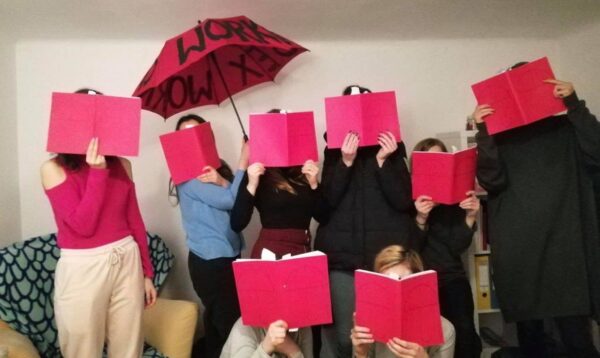
A big part of Sex Work Polska is also providing services to sex workers. Since 2016, they have been running outreach services for sex workers, and since 2020 they have also been offered online. They visit sex workers in their workplaces, both indoors and outdoors, provide HIV and STI prevention materials and counselling, crisis intervention, therapeutic and legal services, fund medical services and also help with housing. They run a 24/7 crisis hotline and are the only organisation in Poland that provides free, unconditional and non-stigmatising services to sex workers.
One of their main strategies is to promote self-organisation and grassroots action. Since they are a non-hierarchical, sex worker-led group and they give voice and agency directly to the community. That’s why they support community initiatives and ideas also with whatever funds they secure.
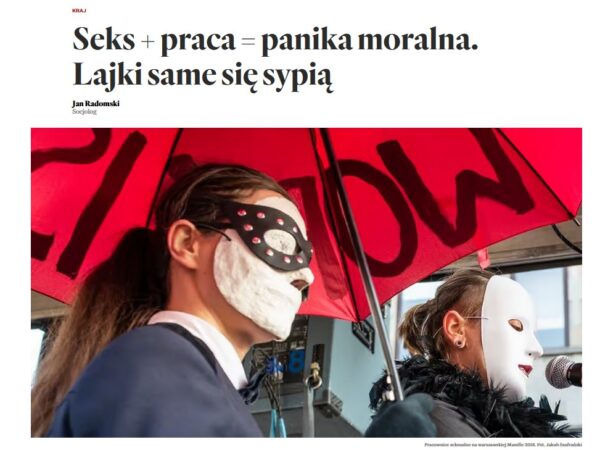
Sex Work Polska oppose the politics of imprisonment and carceral feminism. They are part of feminist and LGBTQ+ coalitions and protests and are very supportive of the pro-abortion movement, and participate in the Women’s Strikes, and every year are part of the 8 March feminist manifestations.
They try to change the existing policies and perceptions on sex work by being visible in the media, engaging and building alliances with different communities and presenting their postulates to political leaders. The team is active on social media and in the press, they give interviews and write manifestos, collaborate with artists and academics and raise awareness about the situation of sex workers and educate about non-extractive research methods. This year they also contributed to the publication of ‘Revolting prostitutes’ by Juno Mac and Molly Smith by participating in sensitisation readings and promoting the book.
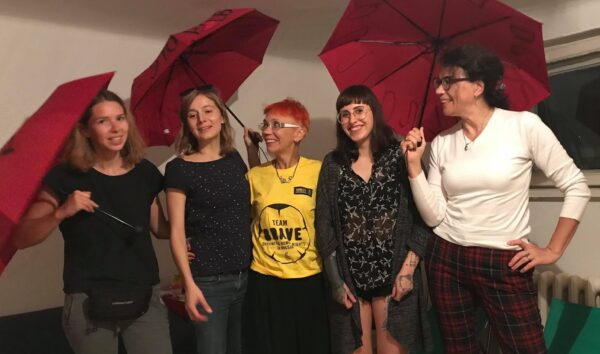
On a practical level, as they face difficult situations in Poland where many people’s basic needs are not being met, they offer consultations with medical specialists, psychological support, consultations with lawyers (including migrant lawyers), thus strengthening the community and building solidarity among sex workers.
The Polish immigration laws are harmful and a very large proportion of the people met on outreach are migrants. Therefore, a large part of Sex Work Polska action is providing legal aid (with a focus on regularisation and obtaining visas) to migrants working in the industry. They try to provide everything that the Polish government does not.
